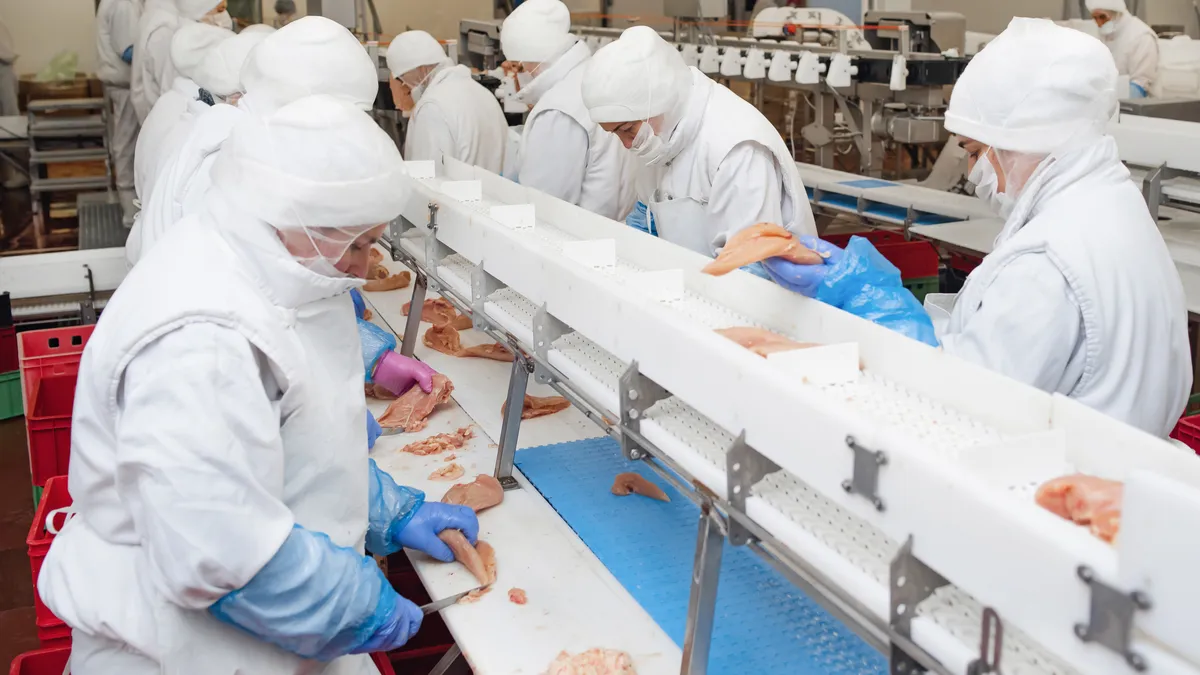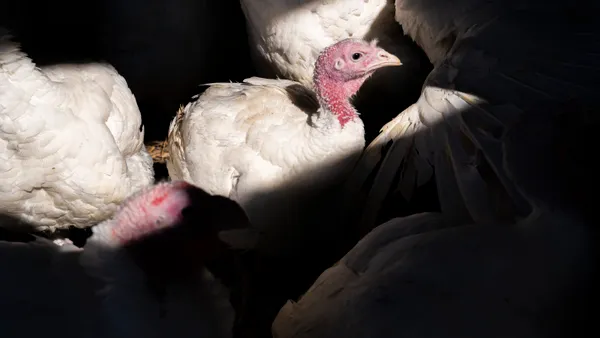Dive Brief:
- California will delay implementing its controversial Proposition 12 for pork already in the supply chain, giving the industry some more breathing room to comply with the state's animal-raising requirements.
- A Superior Court judge ordered that noncompliant pork can be “sold, transferred, exported, or donated” until Dec. 31, allowing a six-month extension for the industry. Previously, pork producers were expected to prove compliance ahead of July 1, when the court’s order is set to expire.
- Industry advocates welcomed the temporary relief as producers continue to adjust to Prop 12, which bans the selling of pork from farms that use gestation crates.
Dive Insight:
Following the Supreme Court’s decision last month to approve Prop 12, the California Department of Food and Agriculture released guidance on what the industry should do with their noncompliant pork ahead of the approaching implementation date.
In the document, the agency said it understands there will be a period of transition and will focus its limited resources for the remainder of 2023 on outreach and certification efforts to make sure producers and distributors are compliant, instead of covered products already in commerce.
Citing the agency’s guidance, Superior Court Judge James Arguelles on June 16 modified his original order, granting temporary relief for noncompliant whole pork meat until next year.
The National Pork Producers Council applauded California for their efforts to find a solution for a smoother transition for the entire pork value chain, though noted it is still working to overturn the law.
“While this temporary solution does not solve the challenges and uncertainty California Proposition 12 brings to our industry, NPPC looks forward to working with Congress to find a permanent solution to this problem,” CEO Brian Humphreys said in a statement.
In an attempt to reverse Prop 12 and other legislation that sets requirements for how meat should be processed, Republican lawmakers have filed proposals that would prohibit states from enacting laws that affect agriculture production in other states.











